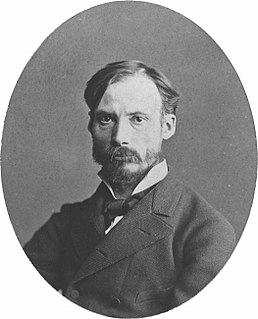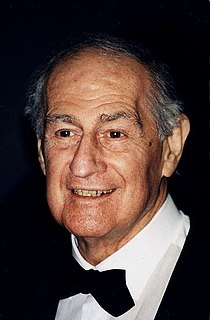A Quote by Pierre-Auguste Renoir
The work of art must seize upon you, wrap you up in itself, carry you away. It is the means by which the artist conveys his passion; it is the current which he puts forth which sweeps you along in his passion.
Related Quotes
Art is a creative effort of which the wellsprings lie in the spirit, and which brings us at once the most intimate self of the artist and the secret concurrences which he has perceived in things by means of a vision or intuition all his own, and not to be expressed in ideas and in words-expressible only in the work of art.
Whoever accepts the higher mission of art and comes nearer and nearer to it through his creative activity, will then go on from art to the Spirit deep within his own self... The philosophic search for enlightenment and the artist's search for perfection of work can meet and unite. Art can be a path to spiritual enlightenment but not to complete and lasting enlightenment. It can be born out of, and can give birth itself to, only Glimpses. For art is a search for beauty, which by itself is not enough. Beauty must be supported by virtue and both require wisdom to guide them.
The master in the art of living makes little distinction between his work and his play, his labor and his leisure, his mind and his body, his information and his recreation, his love and his religion. He hardly knows which is which. He simply pursues his vision of excellence at whatever he does, leaving others to decide whether he is working or playing. To him he's always doing both.
Forgetfulness, the unhistorical, is ... the atmosphere, in which alone life can come into being. In order to understand it, let us imagine a youth who is seized with a passion for a woman, or a man who is swayed by a passion for his work. In both cases what lies behind them has ceased to exist and yet this state (the most unhistorical that can be imagined) is that in which every action, every great deed is conceived and accomplished.
Art, and, above all, music, has a fundamental function, which is to catalyze the sublimation that it can bring about through all means of expression. It must aim through fixations which are landmarks, to draw [one] towards a total exaltation in which the individual mingles, losing his consciousness in a truth immediate, rare, enormous, and perfect. If a work of art succeeds in this undertaking even for a single moment, it attains its goal.
To Jacob the act of critiquing art was essentially imprecise. That's why he didn't read reviews on anything he liked, be it a book, a movie, or a record. He believed that any work an artist puts forth which contains the truth as he or she sees it is worthy of consideration, and any commentary of the work beyond that is nothing more than pure individual opinion and should not be considered relevant to the work itself.
Love, which, in concert with Abstinence, established Faith, and which, along with Patience, builds up Chastity, is like the columns that sustain the four corners of a house. For it was that same Love which planted a glorious garden redolent with precious herbs and noble flowers-roses and lilies-which breathed forth a wondrous fragrance, that garden on which the true Solomon was accustomed to feast his eyes.
What becomes decisive to a Justice's functioning on the Court in the large area within which his individuality moves is his general attitude toward law, the habits of the mind that he has formed or is capable of unforming, his capacity for detachment, his temperament or training for putting his passion behind his judgment instead of in front of it. The attitudes and qualities which I am groping to characterize are ingredients of what compendiously might be called dominating humility.
From the root, the sap rises up into the artist, flows through him, flows to his eye. Overwhelmed and activated by the force of the current, he conveys his vision into his work. And yet, standing at his appointed place as the trunk of the tree, he does nothing other than gather and pass on what rises from the depths. He neither serves nor commands he transmits. His position is humble. And the beauty at the crown is not his own; it has merely passed through him.
Thoughts and emotions which never perhaps were in the mind of the artist, never were anticipated, never were intended by him - may be strongly suggested by his work. This is an important part of the morals of art, which we must never lose sight of. Art is not only for pleasure and profit, but for good and for evil.







































